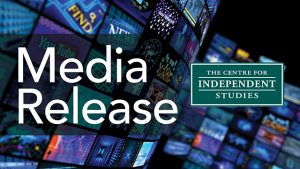Home » Commentary » Media Release » New CIS research: To protect free speech and minorities focus on criminalising incitement
· MEDIA RELEASE

 Those pushing for expanded ‘hate speech laws’ are threatening free speech in Australia by seeking to inappropriately lower the legal threshold for vilifying statements, according to a report from the Centre for Independent Studies.
Those pushing for expanded ‘hate speech laws’ are threatening free speech in Australia by seeking to inappropriately lower the legal threshold for vilifying statements, according to a report from the Centre for Independent Studies.
In Criminalising Hate Speech: Australia’s crusade against vilification, Monica Wilkie argues that it is possible to protect minorities from real harm without unduly infringing on free speech, so long as vilification laws properly criminalise incitement and threats of violence.
“Inciting and threatening violence is a public safety issue and has long been against the law,” Ms Wilkie said.
“But calls are increasing to make illegal any speech deemed ‘likely to incite’ vilification.”
“The Patten Bill introduced in Victoria is an example of the kind of laws demanded by many human rights bodies and activists that would significantly weaken the vilification threshold to a free-speech endangering low level.”
“Vilification laws that have low thresholds create huge legal grey areas.”
“They risk silencing legitimate debate about contentious subjects ranging from immigration policy to gender identity because people fear being caught up in time and money consuming legal actions.”
Most Australian jurisdictions are reviewing their vilification laws.
“To avoid free speech controversies, other states and territories should adopt the kind of vilification laws introduced in NSW in 2018 that target truly hateful speech,” says Wilkie.
“The Crimes Amendment (Publicly Threatening and Inciting Violence) Act makes it simpler for the police to successfully prosecute those who make statements that threaten or incite violence against racial or other minorities.”
“But by maintaining a high threshold – and by criminalising only speech that truly threatens or incites violence – NSW has avoided the kind of free speech traps that exist in the Patten Bill.”
Monica Wilkie is a policy analyst at the Centre for Independent Studies
New CIS research: To protect free speech and minorities focus on criminalising incitement